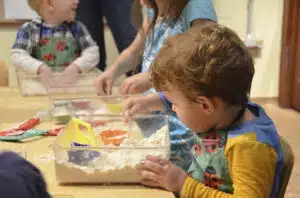By Rouzan Dishoian, MS, CF SLP
Reflexes are involuntary responses to certain stimuli that help us protect our body from things that can harm us. Infants are born with a few oral-pharyngeal reflexes that are critical to maintain life and ultimately serve functions, such as feeding, breathing, and communication.
Here are some infant oral-reflexes:
- Rooting reflex: Babies turn their head toward the source of touch when you stroke their cheek. This helps them locate the nipple for feeding. Babies are born with this reflex and it helps them survive.
- Phasic-bite reflex: This reflex is initiated when pressure is placed on the baby’s gums. The response is a rhythmic opening and closing of the jaw without lateral movement. This reflex typically diminishes between 9-12 months with a controlled, sustained bite.
- Suckling reflex: This primitive reflex is initiated when you place your finger or a nipple in the baby’s mouth. Suckling is the upward front to back movement of the tongue that helps create a pressure in the mouth essential for milk removal. This reflex is shaped into a more voluntary sucking around the age of 4-6 months. Pacifiers encourage the immature, front-back action of suckling.
- Swallowing reflex: Swallow is initiated when saliva, liquid, or solid reaches the back of the baby’s mouth. Your baby comes under control of this reflex by 18 months and it continues as an important reflex throughout our lives. It helps protect our airway and prevents food from going down the trachea.
- Gag reflex: This reflex protects the baby from swallowing items that are too large. A baby’s gag reflex is located in the front of the mouth and it moves back to the posterior ⅓ of the tongue as they grow. The gag reflex continues throughout our lives. Studies find that about 20% of people lack this reflex without any damage to their nerves.
Sometimes reflexes are used to facilitate appropriate oral movements for feeding. SLPs can assess these reflexes in addition to oral-motor skills necessary for feeding and speech. Contact us to inquire about speech therapy and feeding therapy.




